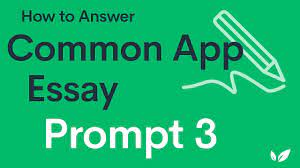The Comprehensive Guide to AP Music Theory
"Get ready to embark on a musical journey like no other, where you'll unravel the secrets of composition, master the language of harmony, and conquer the AP Music Theory test. Are you prepared to dive into the depths of musical structure, analyze intricate melodies, and unlock the power of musical notation? Look no further! Admit Hero has curated a comprehensive guide to help you navigate the nuances of the AP Music Theory test and achieve outstanding success."
Essential Strategies to Excel in the AP Music Theory Test:
- Develop Strong Aural Skills: Aural skills are fundamental in music theory. Strengthen your abilities in the following areas:
- Interval Recognition: Train your ears to identify intervals by ear. Practice recognizing and distinguishing between different intervals, both melodic and harmonic.
- Chord Progressions: Familiarize yourself with common chord progressions and their characteristic sounds. Develop the ability to identify chord qualities and progressions by ear.
- Rhythm and Meter: Practice clapping and counting rhythms accurately. Develop a solid understanding of different meters and rhythmic patterns.
- Master Musical Notation: Understanding musical notation is crucial for analyzing and composing music. Focus on the following aspects:
- Note Reading and Identification: Improve your note reading skills in both treble and bass clefs. Practice identifying notes on the staff quickly and accurately.
- Key Signatures and Scales: Learn all major and minor key signatures and their corresponding scales. Familiarize yourself with different modes and their characteristic sounds.
- Score Analysis: Study and analyze musical scores, paying attention to the relationships between melody, harmony, rhythm, and form.
- Dive into Harmony and Composition: Harmony and composition are integral components of the AP Music Theory test. Enhance your skills in these areas:
- Harmonic Analysis: Practice analyzing chord progressions and identifying their functions within a given key. Understand how chords relate to each other and contribute to the overall harmonic structure of a piece.
- Melodic Composition: Experiment with composing melodies in different styles and genres. Practice writing melodies that demonstrate effective use of motifs, phrasing, and musical contour.
- Part Writing: Familiarize yourself with the rules of voice leading and part writing. Understand how to create smooth and independent lines while maintaining proper harmonic progression.
Frequently Asked Questions about the AP Music Theory Test:
Q: Do I need to play an instrument or have vocal training to succeed in AP Music Theory? A: While playing an instrument or having vocal training can be beneficial, it is not a requirement for success in AP Music Theory. The focus of the test is on understanding and analyzing music theory concepts, musical notation, and composition techniques.
Engaging Question: "Can you imagine deciphering the intricate language of music, analyzing the genius of composers, and unlocking the secrets of harmonious melodies? How will mastering the AP Music Theory test deepen your appreciation for music, enhance your musical abilities, and inspire your own compositions?"
Conclusion: Conquering the AP Music Theory test requires a combination of strong aural skills, mastery of musical notation, and a deep understanding of harmony and composition. With Admit Hero as your guide, you can confidently navigate the complexities of music theory and excel in the AP Music Theory exam. By following our strategies, developing your aural skills, mastering musical notation, and delving into harmony and composition, you will be well-prepared to tackle the test and achieve exceptional results. Remember, the world of music is vast and captivating, but with passion, dedication, and the right approach, you can unlock the doors to musical mastery and embark on a lifelong journey of musical excellence.

 By
By


